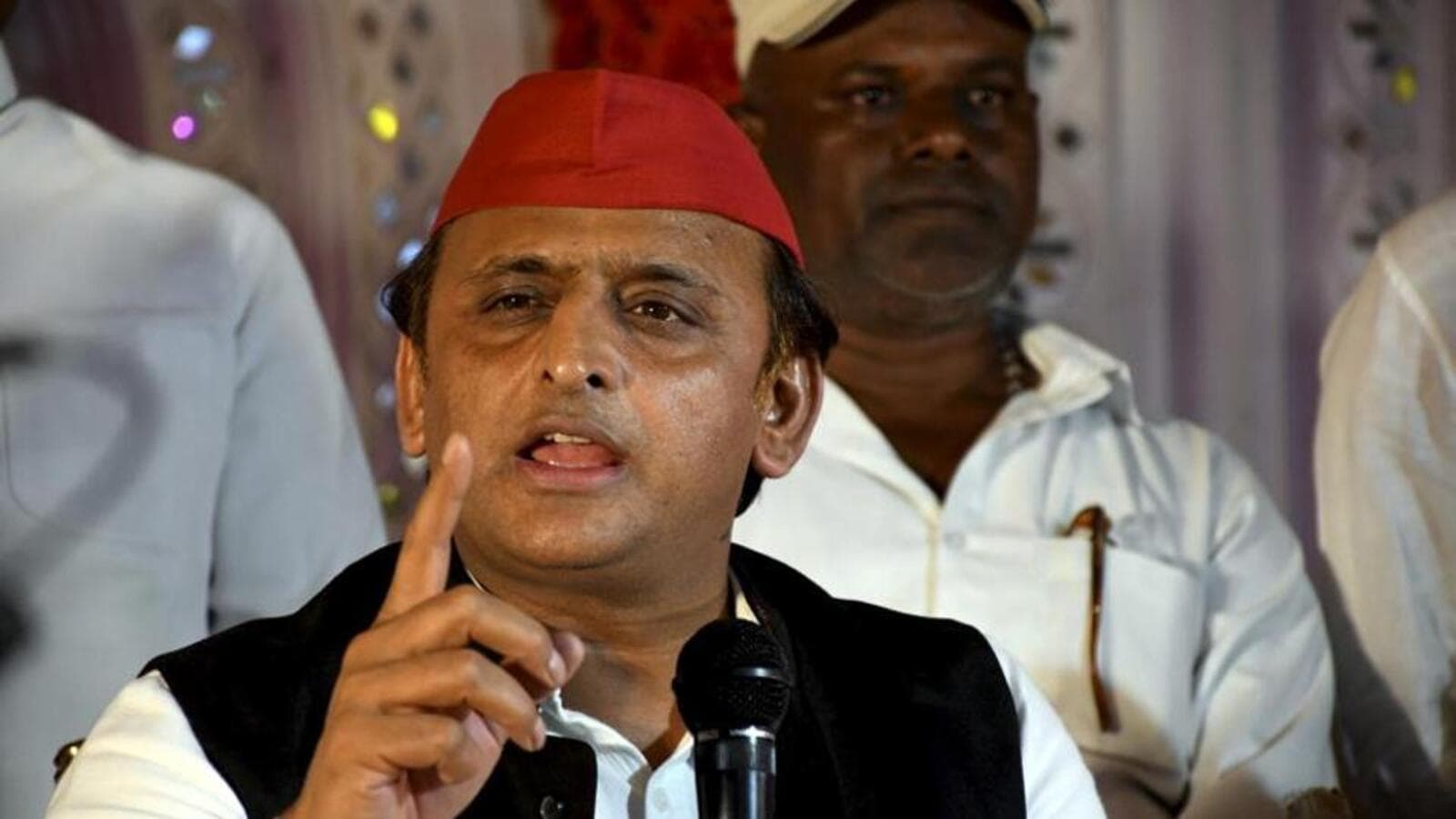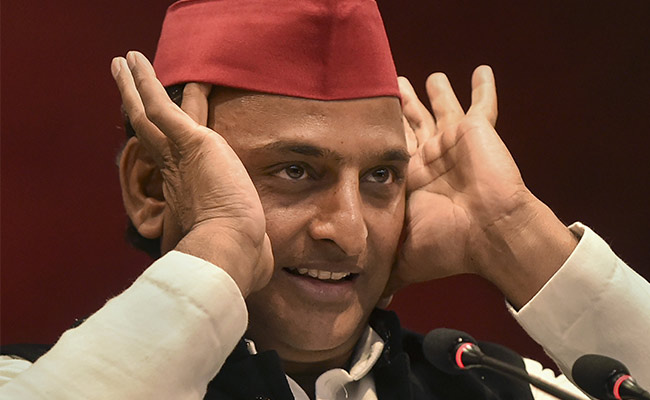Explosive Allegations Unveil Political Turmoil: Akhilesh Yadav Reacts to ISKCON Controversy

Explosive Allegations Unveil Political Turmoil: Akhilesh Yadav Reacts to ISKCON Controversy
In a recent development that has sent shockwaves through the political landscape of Uttar Pradesh, Samajwadi Party (SP) chief Akhilesh Yadav has responded to the controversy surrounding the International Society for Krishna Consciousness (ISKCON) and the Bharatiya Janata Party (BJP). The allegations made by BJP MP Maneka Gandhi, claiming that ISKCON is involved in selling cows to butchers, have ignited a fierce debate, with Yadav branding these accusations as part of a “bigger conspiracy.”
The unfolding saga began when Maneka Gandhi, a prominent BJP member, made a startling assertion that ISKCON, a global religious organization that propagates devotion to Lord Krishna, was engaged in the sale of cows for slaughter. These allegations, made during a politically charged atmosphere in Uttar Pradesh, have had far-reaching implications, sparking outrage and disbelief among ISKCON devotees and raising questions about the motivations behind such claims.
Akhilesh Yadav, known for his astute political acumen and leadership, wasted no time in addressing the matter. He characterized the BJP’s actions as a deliberate targeting of religious and spiritual organizations in the state. According to Yadav, this controversy is not isolated but part of a larger design to undermine faith-based communities, and he pointed to a previous incident involving the Radha Soami Satsang as evidence.

“The BJP members first targeted the Radha Soami Satsang,” Yadav remarked, “and now BJP people are accusing worshipers of Lord Krishna of selling cows to butchers.” This connection to the Radha Soami Satsang incident is crucial in understanding the context of the unfolding controversy.
Earlier, the Radha Soami Satsang, a spiritual organization with a massive following in India, had also found itself at the center of a political storm. The group was accused of amassing an excessive amount of land, which triggered a heated debate about land use policies and their tax-exempt status. Akhilesh Yadav’s assertion of a pattern here suggests a deliberate strategy by the BJP to target religious organizations and create sensational controversies for political advantage.
The allegations against ISKCON have left many perplexed, primarily because the organization is renowned for its global efforts to promote spirituality, vegetarianism, and devotion to Lord Krishna. ISKCON, founded by A.C. Bhaktivedanta Swami Prabhupada in 1966, has established numerous temples, schools, and outreach programs worldwide, all aimed at spreading the teachings of Lord Krishna and advocating for a compassionate lifestyle.
ISKCON devotees have vehemently denied the accusations made by Maneka Gandhi and the BJP. They argue that the organization is centered on the principles of non-violence and compassion towards all living beings, which makes the allegations of cow slaughter particularly egregious. The very idea of ISKCON’s involvement in such activities is diametrically opposed to its core beliefs.
)
As the political battle intensifies in Uttar Pradesh, the controversy surrounding ISKCON has polarized public opinion. While some view the allegations with skepticism and question the timing of such claims in the run-up to elections, others may be swayed by the sensational nature of the accusations.
For the BJP, this controversy carries both risks and rewards. Accusations of this nature, if proven false, could tarnish the party’s image and credibility. On the other hand, if they succeed in creating doubt or confusion among certain voter demographics, it could impact the electoral outcomes in the state.
In light of these developments, it is essential to examine the potential consequences of such allegations. The first and most immediate impact is the potential to erode the trust and faith that millions of ISKCON devotees place in the organization. If these allegations persist without substantiated evidence, it could lead to a significant loss of support for the BJP among these religious communities.
Furthermore, this controversy highlights the broader issue of the politicization of religion and spirituality in India’s political landscape. When religious organizations become pawns in political games, it raises concerns about the secular fabric of the country and the need for a more respectful and responsible discourse in public life.
The timing of these allegations is particularly noteworthy, given the approaching elections in Uttar Pradesh. The state holds immense political significance in Indian politics, and every move made by political parties is closely scrutinized. The BJP, which currently holds power in the state, faces a formidable challenge from the SP and other opposition parties.

As the dust settles on this explosive controversy, it remains to be seen how it will impact the political fortunes of the BJP and its rivals in Uttar Pradesh. The allegations against ISKCON have brought to the forefront the importance of maintaining the integrity of religious institutions and ensuring that politics does not overshadow the core principles of faith and spirituality.
The controversy surrounding ISKCON and the BJP also raises questions about the role of fact-checking and responsible journalism in today’s fast-paced media landscape. In an era of instant news dissemination through social media, allegations and accusations can quickly gain traction, often before all the facts are thoroughly examined. This situation underscores the importance of a rigorous and impartial investigation to determine the veracity of such claims. It’s imperative that both the accusers and the accused are given a fair opportunity to present their case before the court of public opinion passes judgment.
Additionally, the ISKCON controversy highlights the delicate balance between religious freedom and state interference. India, known for its diverse religious landscape, has enshrined the right to practice and propagate religion in its constitution. However, when religious organizations become embroiled in political controversies, this balance can be disrupted. Ensuring that religious institutions can function independently while adhering to legal and ethical standards is a challenge that policymakers and society as a whole must grapple with.
As the election season in Uttar Pradesh unfolds, this controversy will continue to be a focal point of debate. Political discourse in India has often been characterized by polarizing narratives and sensationalism. Finding common ground and respectful dialogue between political parties, religious institutions, and the electorate is crucial to maintaining the democratic principles upon which the nation was founded.
In conclusion, the ISKCON controversy, with its sensational allegations and political implications, has ignited a fierce debate in Uttar Pradesh. Akhilesh Yadav’s assertion of a broader conspiracy and the potential consequences for both the BJP and ISKCON devotees make this a story of significant national importance. As the state gears up for elections, the future trajectory of this controversy and its impact on the political landscape will be closely watched by observers across India.




